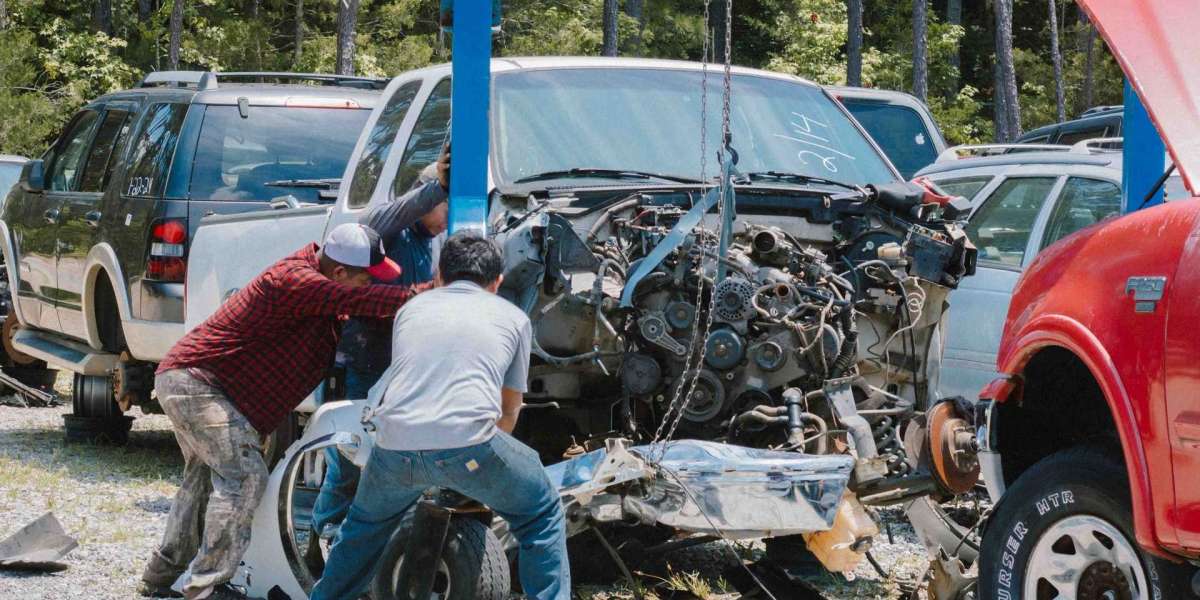Used car parts are an essential resource for many vehicle owners and repair professionals. They offer a cost-effective and environmentally friendly alternative to new components. This guide provides an overview of the benefits of used car parts, tips on where and how to source them, and key considerations to ensure you make the best choices for your vehicle.
Benefits of Using Used Car Parts
Cost Savings: One of the primary advantages of used car parts is their affordability. New parts can be significantly more expensive, especially for older or rare vehicles. Used parts offer substantial savings, which can be particularly beneficial for budget-conscious consumers or those repairing older vehicles.
Environmental Impact: Reusing car parts supports environmental sustainability. By opting for used parts, you contribute to reducing waste and conserving resources. Recycling vehicle components helps lower the demand for new manufacturing, which in turn reduces energy consumption and environmental pollution.
Availability of Rare Parts: For classic cars or discontinued models, finding new parts can be challenging. Used car parts provide a viable solution for sourcing rare or obsolete components. Salvage yards and auto recyclers often have extensive inventories that include parts for older or less common vehicles.
Reduced Depreciation: Used car parts have already undergone their initial depreciation, making them a cost-effective option. Since these parts are no longer subject to the same level of depreciation as new components, their value remains stable over time.
How to Source Used Car Parts
Salvage Yards: Salvage yards, or junkyards, are a primary source for used car parts. They offer a wide range of components from vehicles that have been decommissioned. Visiting a salvage yard allows you to inspect parts personally and choose those that meet your needs. Many salvage yards also provide online inventories, making it easier to find specific parts.
Online Marketplaces: Websites like eBay, Craigslist, and specialized auto parts platforms offer a vast selection of used parts. When purchasing online, check the seller’s reputation, read reviews, and request detailed descriptions and photos of the parts. This helps ensure that you receive parts that are in good condition and compatible with your vehicle.
Auto Recyclers: Certified auto recyclers refurbish and test used parts to ensure they meet quality standards. These recyclers provide a higher level of assurance regarding the condition and functionality of the parts. They often offer warranties or guarantees, adding an extra layer of confidence to your purchase.
Local Mechanics and Repair Shops: Mechanics and auto repair shops frequently work with used parts suppliers. They can offer recommendations based on their experience and may have access to reliable sources for used components.
Automotive Forums and Community Groups: Online forums and community groups dedicated to specific vehicle makes or models can be valuable resources for finding used parts. Enthusiasts often share leads on where to find parts and may have personal recommendations based on their experiences.
Considerations When Buying Used Car Parts
Part Compatibility: Ensure that any used parts you purchase are compatible with your vehicle’s make, model, and year. Verify part numbers and specifications to avoid issues with fitment and functionality.
Condition of Parts: Inspect used parts carefully for signs of wear, damage, or rust. Request detailed information about the part’s history and condition if purchasing online. A thorough examination helps ensure that the part will function properly and meet your expectations.
Warranties and Returns: Inquire about warranties or guarantees on used parts. While these may be shorter than those for new parts, they provide some assurance of quality. Understand the return policies of the seller to address any issues if the part does not meet your needs.
Seller Reputation: Choose reputable sellers with positive reviews and a track record of good service. Research the seller’s reputation to ensure that you’re buying from a reliable source.
Professional Installation: If you’re not experienced with vehicle repairs, consider having a professional mechanic install the used parts. Proper installation ensures that the parts function correctly and reduces the risk of complications.
Conclusion
Used car parts offer a cost-effective, environmentally friendly, and practical solution for vehicle repairs and maintenance. By understanding the benefits, sourcing parts from reputable suppliers, and considering key factors such as compatibility and condition, you can make informed decisions and get the most out of your used auto parts purchases. Whether you’re maintaining an older vehicle or looking for specific components, used car parts provide a valuable alternative to new components while supporting sustainability.



